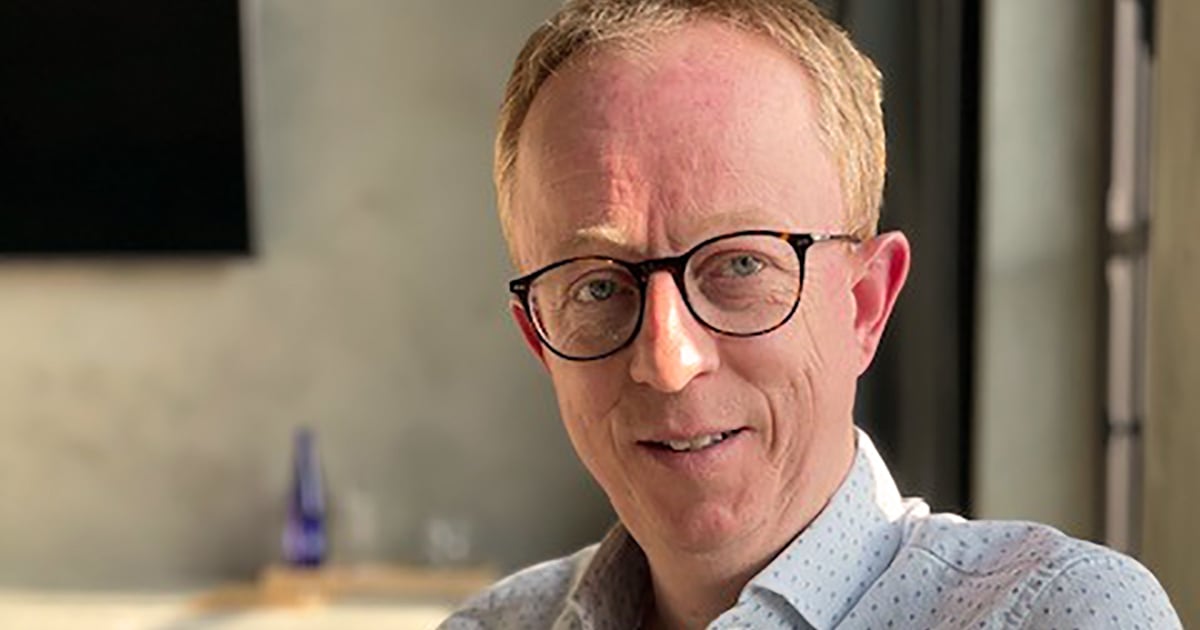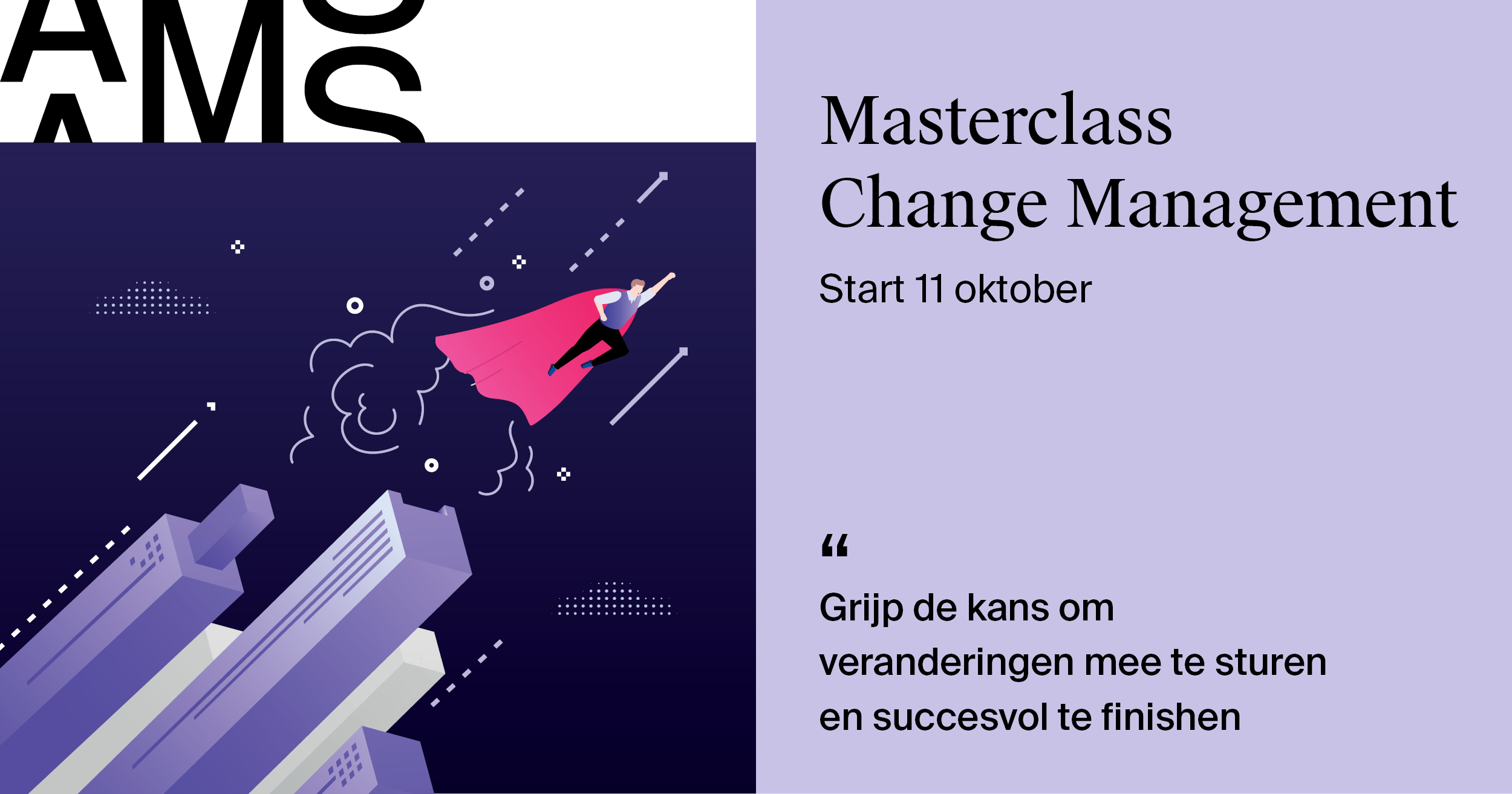Steven Pans is a medical staff member of Radiology at UZ Leuven. He specializes in musculoskeletal radiology and performs medical interventions practically on a daily basis. Although he still gets great satisfaction from his job, he is more and more interested in organizing care instead of just providing it. The medical world is facing enormous challenges, and he wants to be there, to help lead change. In this way, his seemingly not quite logical decision as a radiologist to follow a Master Class in Change Management all of sudden does make sense.
All those who thought that online medical consultations would forever remain science fiction or that vaccine development would always require years and years of work, have been proved wrong by the coronavirus crisis. Medical innovations have sped up drastically, and Steven Pans is right in the middle of this acceleration: "It was already clear before the coronavirus crisis: the patients of today are no longer the passive patients of the past. Doctors have changed as well: top-down thinking is more and more giving way to participation and cooperation. Concepts such as bringing hospital care to people’s homes instead of the other way round were already trending. The coronavirus crisis has pushed these evolutions forward and proved that in the medical world we can now pull off things that were said to be impossible."
Traditional organization design and people management will not get us there anymore

But through all these changes, how can hospitals continue to guarantee and improve quality while supporting their people as best they can? "Traditional organization design and people management won’t get us there anymore ", Steven Pans is convinced. "I am a member of the medical council and I’m also engaged in several quality improvement and research projects. Besides providing care, I have become more and more fascinated by questions such as 'How to build a good team?', 'How to improve communication?' or 'How to deal with trauma in an organization?'. I went through a very difficult time in my life too, and I couldn’t get my head around how a person somehow still finds a way to cope with severe trauma."
The theoretical part is built up in a very logical and manageable way
"So my motivation for taking the Master Class in Change Management at Antwerp Management School was both professional and personal: I wanted to gain insight into the mechanisms behind change so that I could apply them. I had already done some reading and took some other courses such as hospital management. But I really wanted to understand how change processes work. And that is exactly what this Master Class provides you with. The theoretical part is built up in a very logical and manageable way. You learn how an organization works, how to develop a good strategy and how important good leadership is in change processes."
Those personal tips & tricks are just priceless
"What’s really great about this Master Class, is that you also get a lot of practice in addition to the theory. Ron Meyer, for instance, the main lecturer, gives insight into his own experiences. He openly shares the difficulties he has come across in his own career, the lessons he has learned from this, and what he would do differently next time. Those personal tips & tricks are just priceless. And then you also get to work in groups on your own cases. Here, too, you are expected to share your experiences and give feedback. That combination of theory and practice and the interaction with the teachers and the students make this Master Class a very valuable experience. Every time there was another three-day session coming up, I was really looking forward to it."
"Despite the fact that we had to go online because of COVID-19, I never felt like missing out on something because of that. Well, obviously, there were no more informal coffee chats during the break, but the personal approach remained. That is, by the way, pretty much the common thread running through this Master Class. It doesn’t matter whether it is organized face-to-face or online: the teachers are always putting the participants first. They work with engaging case studies, they speed up or slow down if necessary, make room for interaction and feedback, etc.”
It is such a thrill when you manage to get people on board with change, step by step
"There are a lot of things that have stuck with me and that I put into practice now. The importance of people within an organization, for example. You may try to implement change as hard as you like: if the people are not on board, it won't work. In this respect, we are still lagging behind in the business world and in the medical world as well. Thus, we need to take better care of our caregivers. The coronavirus crisis has made this painfully clear. How do you support the doctor as a human being, and not just as a doctor? And not just the doctors, but the nurses too, and the people who work in the kitchen and the cleaning team: how can you safeguard their well-being through all the stress they have to cope with?"
"And then, there’s also the building blocks and pitfalls of a change process we discussed. Or the concept of 'fairness' that is under pressure nowadays, though it is key. Or the need for strategic thinking and getting to the core. All of these things that we have learned during the Master Class are still on top of my mind, and I put them into practice every day. People tend to think that change comes naturally. You introduce a new software package, and you just assume that everyone will use it. Until you see a whole load of angry emails coming in. That's not how it works. Thanks to the Master Class I now know what to look out for during a change process. It is still not easy, but it is such a thrill when you manage to achieve small successes and get people on board with change, step by step. I still get great satisfaction from my job as a doctor, but it’s a great feeling too when you see fewer disillusioned people left standing on the sidelines."
Do you also want to seize the opportunity to help drive change and come out stronger as an organization?




